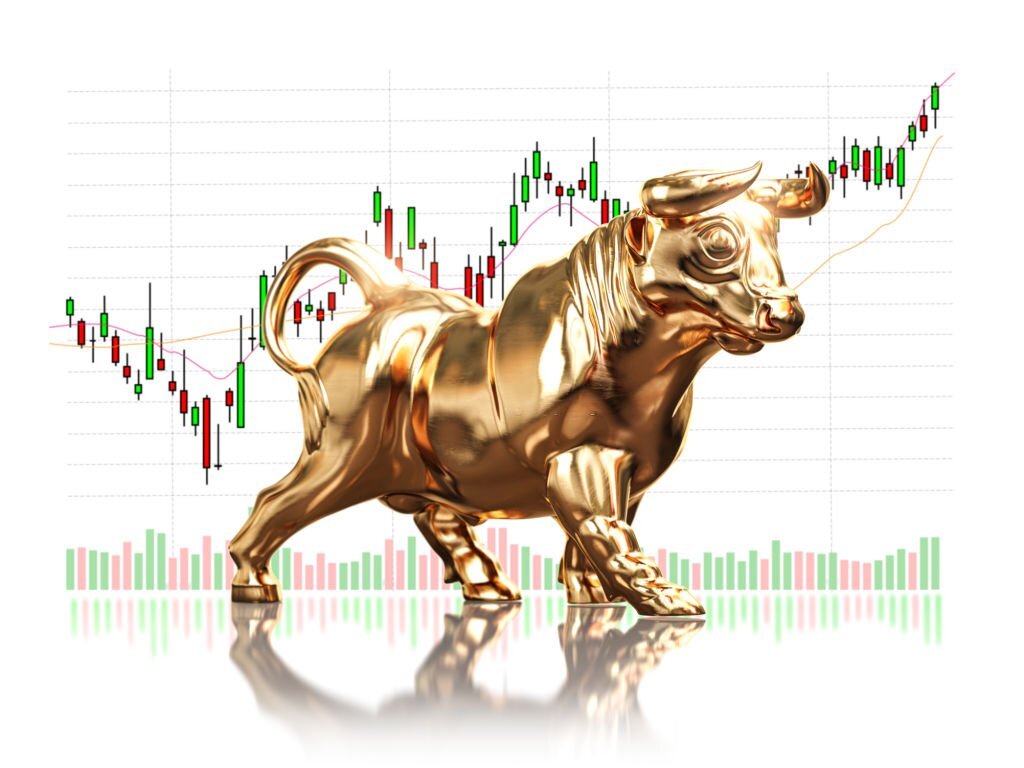The world of investing and trading is filled with a host of complex jargon like expense ratios, earnings per share, ETFs, MLPs, and asset allocations. They are often somewhat confusing, especially if you are new to the field, and it may take time to completely grasp what they are all about.
Well, like any other sector, things get easier as you continue familiarizing yourself with the field. In casino gaming, for example, a beginner might have a tough time playing games like poker and blackjack at Vulkan Vegas casino. With time, however, playing becomes more enjoyable because you have a better idea of how things work.
Of all phrases in investment and trading circles, ‘bullish’ and ‘bearish’ markets are among the most used. However, while they both describe the market’s overall performance, they do it on two completely different spectrums. Simply put, a bull market is when the share prices of trading assets rise steadily over a sustained period, while bear markets are the exact opposite, as share prices fall over a period.
The period in question could be months or years, and the rise or fall has to be at least 20% of recent figures (whether highs or lows). Additionally, the duration of either will depend on several factors, although one fact remains: they don’t last forever, and one is bound to transition into the other.
Why Are the Two Animals Used to Describe the Market?
The origin of the terms ’bull’ and ‘bear’ is unclear, but the general belief is that they were coined from how each animal attacks its target. The bull charges from a low position to lift the target with its horns in an upward motion, whereas the bear approaches from its hind limbs and swoops downwards with its front paws to land a blow.
Differences Between Bull and Bear Markets
Apart from the stock market’s obvious upward or downward trends, a series of circumstances will ensue depending on which of the two is being experienced. As a result, it will determine the direction most investors will choose to take. Whether the market is bullish or bearish, it will affect the general economic trends and behaviors in any community in three main ways:
- Economic growth
- Employment
- Foreign exchange
For easier understanding, below is a tabulated analysis of the differences between bull and bear markets.
| Bull Market | Bear Market | |
| Economic Growth | GDP is expected to be on an upward trend, rising due to high demand to make purchases, and hence sales will also be high. | GDP drops or grows at a much slower rate due to a decline in sales, caused by lower industrial output. As a result, essential commodity prices go up, and the economy experiences CPI-based inflation. |
| Economic Growth | To keep the economy reasonable and control the wealth distribution, governments tend to impose higher taxes and interest rates. | To prevent citizens and companies from a total decline, governments lower the taxes and interest rates on loans and may introduce subsidies as part of social policy. |
| Employment | The unemployment rate is low, and workers tend to quit low-paying jobs for the prospect of better-paying employment. | There is an increase in layoffs as companies downsize to reduce liabilities and stay profitable, if at all. |
| Employment | Higher wages imply higher expenditure as there is enough to go around. | Consumption is at a low as there is less money to purchase necessities. |
| Foreign Exchange | Investors stream into the market to invest, and the domestic currency appreciates. | Investors begin to exit the market to avoid potential and/or further losses, causing the local currency to depreciate. |
| Foreign Exchange | The number of imports also decreases as the production rate is already high within the market. | Demand for imports increases whereas the export rate also declines as production goes down. |
Strategy is Key
Understanding bull and bear markets as normal parts of any financial market cycle is vital for any wise investor as it would help them make better decisions when trends begin to change. As a general rule of thumb, investors are more optimistic in bull markets and have a pessimistic attitude in bear markets. However, in either situation, strategy rather than attitudes is usually the main difference between profit makers and losers.
For example, most investors pull out in bear markets to wait for trends to start changing for the better. But then, the smarter investors strategically begin setting aside cash for investing later, just before the market recovers. They do this by only taking off a part of the risk from existing investments, and they also look for value (for example, in high-dividend or preferred stocks) during bad times. Then, given that the decline will eventually end and prices will be on the rise once more, a win becomes inevitable.
Financial analysts have oftentimes suggested that investing in short-term bonds and diversifying one’s portfolio into commodities such as gold may be instrumental in collecting enough cash for when the market finally picks up again. Ultimately, it’s all about executing the right strategies to come out on top irrespective of the trends!













